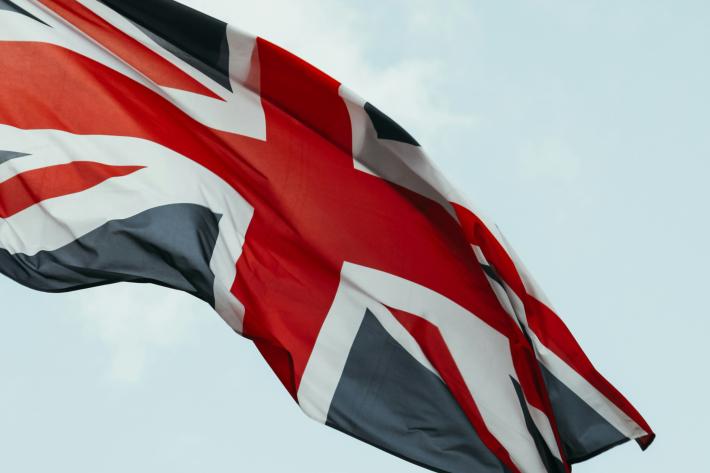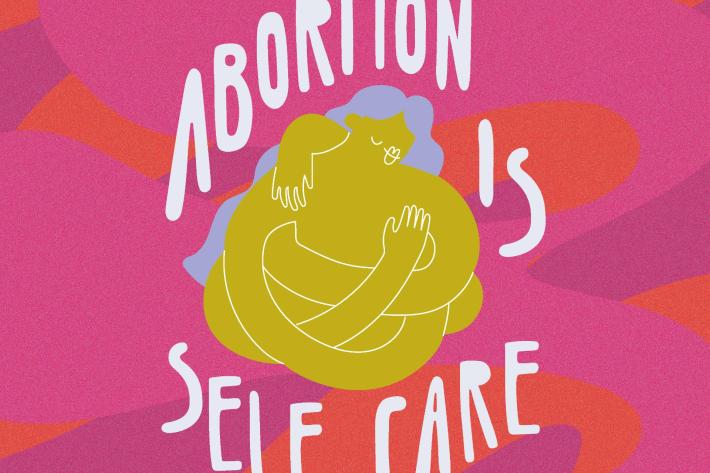
Spotlight
A selection of news from across the Federation

European Commission's new Women's Rights Roadmap includes SRHR—Now we need action
On 7 March, the EC released a new political declaration committing to uphold and advance women's rights. We welcome the inclusion of SRHR and other key topics. Now impactful actions are needed.
Filter our news by:


| 08 March 2022
Poland debates prison terms for abortion in new blow to women’s rights
Joint press release by IPPF EN and Civicus. The Polish Parliament is set to discuss an anti-abortion bill from a religious ultra conservative group to jail women who access abortion and criminalize anyone who helps them do so, including family members, friends and doctors. The new anti-abortion bill - proposed by Pro - The right to life Foundation - who also put forward a bill two years ago that would criminalize anyone who informs young people about sexuality and relationships - will be discussed in the Polish Parliament's lower chamber during a sitting on 1-2 December. The initiative comes one month after a woman named Izabela - died as a result of Poland’s restrictive abortion law, triggering widespread protests. The bill aims to enshrine extremist doctrine in law by establishing harsh prison terms in cases of abortion. Despite Izabela’s death and the recent protest about the current virtual abortion ban, the bill’s backers would support imprisoning women for up to 25 years for abortion and 5 years in case of miscarriage - considered ‘manslaughter’. The wording of the proposal could even lead to life imprisonment if the pregnant woman were charged with ‘aggravated murder’. In addition to introducing prison sentences, the proposal would remove the remaining, extremely limited, exceptions to the ban which currently allow abortion in cases of rape, incest and endangerment of the women’s life or health. This would further paralyse doctors whose hands are already tied in cases of severe foetal impairment. “This is a nightmare scenario for women in Poland because the new bill bears striking similarity to El Salvador’s abortion ban, under which women are incarcerated if they have abortions or miscarriages. If Poland takes such a cruel decision it would simply devastate women and families’ lives,” says Irene Donadio of the International Planned Parenthood Federation European Network. It will be relatively straightforward for the Law and Justice party (PiS) and its allies to secure the adoption of the new bill at any time because they control the lower chamber of the parliament and have influence over the Constitutional Tribunal.* In another shocking development, ahead of the Parliamentary sitting, Poland’s health ministry has announced that the government may force all health care professionals to register every pregnancy. “It’s obvious that this is a well orchestrated plan to put pregnant women under surveillance and then to prosecute them if they decide not to continue a pregnancy or even if they suffer a miscarriage. This insidious strategy will force doctors to inform on their patients and will create terror among pregnant women and those who try to help them to access vital care” continues Donadio. The Polish government's support of these initiatives has put it on a collision course with the EU. Human rights activists hope the EU will continue to apply pressure ahead of an upcoming state of play on the rule of law in Poland. “We call on the Council of the EU to hold the Polish government accountable for violations of the rule of law and of women’s human rights. The General Affairs Council meeting on December 14 will set the tone for next steps with regards to Poland. We urge the EU Member States not to shy away from taking steps to make sure breaches of the rule of law and vast human rights abuses are not brushed under the carpet,” says Aarti Narsee, Civic Space Researcher Europe, Central Asia, MENA for CIVICUSMonitor. Press Contact: International Planned Parenthood Federation European Network, in Brussels, Irene Donadio (English, Italian, French, Spanish): +32-491-071-93-90; or [email protected]. Twitter: @ippfen Notes to the editor: * The Law and Justice party (PiS) and its allies have an absolute majority in the lower chamber of the Polish Parliament. This means that the bill could be adopted on a fast track even if all the parties in opposition try to stop it or amend it in the Senate (where the ruling party does not have the majority). The opposition could delay the process for a month in the Senate but they cannot stop the adoption in a second reading in the lower chamber. If the parliamentarians of the ruling party want to disassociate themselves from this new attack on women’s rights they can flout the rule of law and send the bill to the politicized Constitutional Tribunal, having it adopted via the judiciary as they did last year. For more information on abortion care in Poland, see IPPF EN’s resources, including stories of women human rights defenders. This new anti-abortion bill mirrors a proposal in 2016 that was met with massive public protests, forcing the government to abandon it. At that time, even the Polish Catholic Church witheld its support for the proposal because it would have jailed women for accessing abortion. Yet, in spite of the obvious lack of support both from the public and bishops, this latest ultra conservative bill is much harsher, mandating considerably higher prison sentences. A bill proposing the creation of the "Family and Demography Institute" will be discussed during the same sitting of the lower chamber on December 1-2. The Institute is expected to be led by right wing fundamentalist parliamentarian Bartłomiej Wróblewski, the author of the motion to the pseudo - Constitutional Tribunal which has resulted in the current virtual ban on abortion. The head of the institute will be able to intervene as a prosecutor in court proceedings and in administrative processes regarding divorce or adoption filings (could decide over whether or not to grant a divorce and will be able to bring cases against LGBT parents - demanding that they be deprived of their parental rights). The head of the Institute will have access to data collected by any entity in Poland regarding pregnancies and miscarriages. The goal of the institute is to increase Poland's birth rate.

| 08 March 2022
Poland: A Year On, Abortion Ruling Harms Women
(Brussels, October 19, 2021) – Women, girls, and all pregnant people have faced extreme barriers to accessing legal abortions in the year since a Constitutional Tribunal ruling virtually banned legal abortion in Poland, 14 human rights organizations said today. Since the ruling, women human rights defenders have also faced an increasingly hostile and dangerous environment. Poland’s authorities should end efforts to undermine reproductive rights and weaken protections from gender-based violence. They should commit to protecting women human rights defenders who have faced ongoing threats and attacks since the October 2020 decision. Escalating death threats since October 9 against Marta Lempart, co-founder of Ognopolski Strajk Kobiet (All-Poland Women’s Strike) and a target of repeated threats for leading demonstrations supporting legal abortion and women’s rights, led to her police protection during public appearances. “The Constitutional Tribunal ruling is causing incalculable harm to women and girls – especially those who are poor, live in rural areas, or are marginalized,” said Urszula Grycuk, international advocacy coordinator at the Federation for Women and Family Planning (Federa) in Poland. “The dignity, freedom and health of pregnant people are compromised because their own government is denying them access to essential reproductive health care.” The organizations are Abortion Support Network, Amnesty International, the Center for Reproductive Rights, CIVICUS, Federa, FOKUS, Human Rights Watch, International Campaign for Women’s Right to Safe Abortion, International Federation for Human Rights (FIDH), International Planned Parenthood Federation-European Network, MSI Reproductive Choices, Le Planning Familial, Riksförbundet för sexuell upplysning/The Swedish Association for Sexual and Reproductive Rights, and Strajk Kobiet/Women’s Strike. Poland’s Constitutional Tribunal, whose independence and legitimacy is profoundly eroded, is widely acknowledged as politically compromised. On October 22, 2020, it ruled that abortion on grounds of “severe and irreversible fetal defect or incurable illness that threatens the fetus’ life” was unconstitutional. The government brought the case to the tribunal after parliament failed to adopt legislation with the same effect. The ruling came into force on January 27, 2021. This eliminated one of the few legal grounds for abortion under Poland’s highly restrictive law. Previously, over 90 percent of the approximately 1,000 legal abortions annually in Poland were on these grounds. The ruling came as Covid-19 pandemic restrictions made travel for health care prohibitively difficult and costly. The ruling spurred the country’s largest public protests in decades, led by women human rights defenders. Activists and women’s rights groups reported that the ruling had a significant chilling effect as people seeking abortions and medical professionals feared repercussions. Abortion Without Borders, which aids women in European countries where abortion is illegal or access is highly restricted, reported that 17,000 women in Poland contacted them in the six months after the ruling for help accessing abortion, and that they continue to receive about 800 calls a month. Federa, a Polish reproductive health and rights organization, reported conducting approximately 8,100 consultations in the 11 months after the ruling, 3 times as many as during the same period in previous years. This included calls to its helpline and over 5,000 emails concerning access to abortion and other sexual and reproductive health services. Since the Law and Justice party came to power in 2015, Poland’s government has repeatedly moved to further curb sexual and reproductive health and rights, including by supporting a 2016 draft bill for a total abortion ban that parliament rejected following mass public protest. The government also supported a draft bill, introduced by an ultra-conservative group, to essentially criminalize comprehensive sexuality education. The bill has been in committee since April 2020. These bills are “civic initiatives,” which require public signatures to be considered. In September 2021, the same group introduced a new civic initiative “Stop Abortion” bill to parliament. It would consider abortion at any stage a homicide and would bring criminal penalties against women who have abortions, and anyone who assists them, with punishment of up to 25 years in prison. The bill is backed by Ordo Iuris Institute for Legal Culture, an ultra-conservative, anti-choice, and anti-lesbian, gay, bisexual, transgender, and intersex (LGBTI) group. Women’s rights organizations and parliament members of the opposition Lewica party are collecting signatures for a civic initiative bill, “Legal Abortion Without Compromise,” which would permit abortion without restriction as to reason up to the twelfth week of pregnancy. It would permit abortion after 12 weeks in cases of risk to the person’s mental or physical health, a non-viable pregnancy, or pregnancy resulting from rape or incest. Evidence consistently demonstrates that laws restricting or criminalizing abortion do not eliminate it, but rather drive people to seek abortion through means that may put their mental and physical health at risk and diminish their autonomy and dignity. The United Nations Human Rights Committee has said that as part of the obligation to protect the right to life of pregnant people, states should not apply criminal sanctions against anyone undergoing abortion or medical service providers assisting them. In July, the European Court of Human Rights (ECtHR) announced that it will address complaints from Polish women who may be victims of violations of the European Convention on Human Rights and Fundamental Freedoms due to the Constitutional Tribunal’s abortion ruling. Poland’s government has failed to effectively implement previous ECtHR judgments concerning access to lawful abortion despite repeated calls and a March judgment by the Committee of Ministers of the Council of Europe. The Law and Justice government has also targeted women’s rights organizations and activists. Activists said that government rhetoric and media campaigns smearing them and their work foster misinformation and hate that can put their safety at risk. Several women’s rights defenders were detained or face what they describe as politically motivated criminal charges for actions during protests following the Constitutional Tribunal’s abortion ruling. Activists received multiple bomb and death threats in February and March for their support of reproductive rights but said that, in many cases, police minimized the security risks and either did not open investigations or failed to pursue them effectively. No one has been held accountable for these threats. Police launched investigations and arrested one man in connection with online death threats to Lempart ahead of her planned appearance at a protest on October 11, and are now providing her protection at public events. The government has undermined efforts to combat gender-based violence, including by initiating Poland’s withdrawal from a landmark European convention on violence against women, the Istanbul Convention. The government referred the convention to the politically compromised Constitutional Tribunal for review due to its definition of “gender.” Campaigns against gender equality have been used to target women’s and lesbian, gay, bisexual, transgender, and intersex rights and those who support them. “Extreme restrictions on abortion are part of a broader assault by Poland’s government on human rights, including women’s rights and LGBTI rights, and the rule of law,” said Marta Lempart, co-founder of Strajk Kobiet. “It should alarm all Europeans that this is happening in their own backyard, even as European governments claim to be leaders on women’s rights and democratic values.” The anti-abortion ruling’s anniversary comes amid increasing tensions between Poland’s government and the European Union after an October 7 Constitutional Tribunal ruling rejecting the binding nature of EU law. It followed a series of EU Court of Justice rulings that the Polish government’s weakening of judicial independence breaches EU law. The European Commission said it “will not hesitate to make use of its powers” under EU treaties to ensure application of EU law and protect people’s rights. Poland’s government should reverse restrictions on reproductive rights and ensure that these rights are upheld in accordance with international law, including the right to access safe abortion. It should cease attacks on women’s rights and women human rights defenders and end moves to undermine the rule of law, democracy, and human rights. The European Commission and EU member states should urgently address rule of law breaches and their impact on women’s human rights, including reproductive rights, in Poland. The European Commission should trigger legal infringement proceedings for Polish authorities’ use of a politically compromised Constitutional Tribunal to erode the rights of people in Poland and undermine democratic checks and balances, in blatant violation of the EU Treaties. The Commission and EU member states should act to protect and support women’s rights defenders and organizations in Poland. Member states should actively support people in Poland seeking access to abortion. The Commission should urgently implement the mechanism tying access to EU funds to respect for EU values and continue its commitment to tie EU Recovery Funds to rule of law guarantees. EU member states should advance and expand scrutiny under Article 7.1 of the Treaty on European Union (TEU) by adopting specific recommendations or voting to determine that there is a clear risk of a serious breach of EU values in Poland, as has been called for also by European Parliament. “Despite fear and repercussions, people in Poland are fighting every day to protect rights that everyone in the EU should be able to exercise freely, including access to safe abortion,” said Hillary Margolis, senior women’s rights researcher at Human Rights Watch. “Women’s rights are on a precipice in Poland, and unless the European Commission and Council act to defend democratic values, more and more women and girls will suffer the consequences.” Press Contact: International Planned Parenthood Federation European Network, in Brussels, Irene Donadio (English, Italian): +32-491-071-93-90; or [email protected]. Twitter: @ippfen

| 24 June 2021
European Parliament adopts landmark position on sexual and reproductive rights
The European Parliament voted today in favour of a landmark report presented by Croatian MEP Predrag Fred Matić on “the situation of sexual and reproductive health and rights in the EU”. While the European Parliament has repeatedly expressed concerns over the lack of full realisation of, and attacks against women’s rights, gender equality and sexual and reproductive health and rights (SRHR), this report is the first of its kind in almost 10 years to give such a degree of political importance to SRHR at EU level. The report addresses the full range of SRHR and highlights the importance of accessing all essential SRH services, including comprehensive sexuality education, contraception, abortion, maternal health and fertility services; and of preventing and addressing sexual and gender-based violence. The vote sends a strong signal that MEPs are fully committed to protect and promote SRHR in the EU at a time when human rights in sexuality and reproduction are increasingly challenged by illiberal leaders, even within the EU, and as the global community makes inspirational commitments to advance SRHR in the Generation Equality Forum. Neil Datta, Secretary for the European Parliamentary Forum for Sexual and Reproductive Rights, said, “Today, the European Parliament assumed its leadership role in strongly upholding the fundamental rights of all Europeans despite deliberate campaigning to incite fear and block the report. Common sense, human rights and values prevailed and MEPs were able to stand up for education and health over ignorance and religious ideology. As awareness about anti-gender movements increases, we can safeguard women’s rights, SRHR and gender equality more effectively”. "The adoption of the report today is a great achievement for the European Parliament and those involved in the negotiations - although protecting the health and rights of everyone should not be controversial. We celebrate the EU’s reinforced commitment to promoting SRHR both within and outside the EU. The EU should now take concrete steps to make the promotion of SRHR for all a priority, both in its internal and external action.” Lisa Goerlitz, Head of Brussels Office, Deutsche Stiftung Weltbevölkerung (DSW). “We now look to the Member States and the European Commission to take the report’s recommendations forward and deliver on sexual and reproductive safety, care and freedom for all. We want to see serious advances on access to sexual and reproductive care as part of a society free from sexism and discrimination,” says Caroline Hickson, Regional Director of the International Planned Parenthood Federation European Network (IPPF EN).
| 02 June 2021
Laiga launches map that provides information on abortion care in Italy
In Italy, even after 43 years from the adoption of Law 194 of 1978, access to abortion care is complicated due to arbitrary and painful hurdles. According to the law, women need to meet a doctor who certifies their abortion request. However, about 70% of the doctors in Italy deny abortion care based on their personal beliefs or convenience (art. 9 of the abortion law). Moreover, after having obtained the certificate from a doctor, women need to “postpone the decision for seven days” (art. 5 of the abortion law), thus being forced to endure a medically unnecessary waiting period. On top of all of this, there is no official information about how and where to access abortion (no institutional website, no specific sections on hospital websites, no national help-line). According to the law, all hospitals and authorised clinics must provide abortion care (art. 9 of the abortion law), but as per the last report from the Health Ministry published in 2018, in practice only about the 65% of them do offer care. Women in Italy continue to face an unacceptable array of obstacles to abortion care and some of these stem from lack of information. So, where to find information to understand how and where to access abortion care in Italy? Laiga, Free Italian Association of Gynaecologists for the implementation of Law 194, an association born in 2008 to gather all abortion providers and spread information on the application of the law and the right to abortion, just published a national map listing all hospitals and clinics providing this health care service, including telephone numbers and addresses. “It has been a very big and challenging project for the association, which took a long time and a lot of energy. During the pandemic all the information we collected in the previous years were changing, many hospital sectors closed either temporarily or permanently. Finally, as a gift to everyone who wants their right to abortion guaranteed, for the 43rd anniversary of the Italian abortion law, Laiga made it!”, said Silvana Agatone, Laiga President. Moreover, Laiga's website also clearly explaines how abortion care can be accessed in Italy: the law and the details around access, a tool to calculate the gestational age, which documents are needed, the different abortion procedures, and finally information on contraceptive care. Through the website and this map, Laiga wants to provide what is needed to actually access care, saving precious time and avoiding delays that might harm women. By Giorgia Alazraki, Laiga Read the press release of Laiga in English.

| 19 May 2021
The EU takes bolder action against Poland and Hungary over vast abuses
We strongly welcome the decision of the Portuguese presidency of the Council of the EU to take action on the deteriorating situation in Poland and Hungary. For too long these EU member states have been allowed to get away with violations of the rule of law and of human rights. Women and the lesbian, gay, bisexual, and transgender (LGBT) community, in particular, have seen their rights eroded. Citizens and media have been silenced, judges and academia have been exposed to attacks. The Portuguese presidency is now set to move forward with proceedings against Poland and Hungary for violations of European values, by holding hearings under Article 7(1) TEU. In the case of Poland, European citizens want the European Union to seriously treat the vast abuses of the rule of law and fundamental rights by addressing: the erosion of judicial independence; the compromised Constitutional Tribunal, which is undermining human rights including women’s rights; violation of the right to peaceful protest and targeting of women’s rights organizations. The abuses perpetrated by the ruling coalition in Poland can no longer be condoned by the EU. “Polish citizens’ lives have been at stake for too long. From government-backed police brutality and smearing in right-wing media targeting peaceful protesters, to death threats against women’s rights defenders, a near-ban on abortion care and threats to withdraw from the Istanbul Convention that protects women from violence, all has led to an atmosphere of terror.” said Irene Donadio, Senior lead of strategy and partnership at the International Planned Parenthood Federation European Network (IPPF EN). The Hungarian government declared a state of emergency – under the pretext of Covid -, seizing unlimited power to rule by decree without parliamentary and judicial review. The government interfered with independent media and academia, launched an assault on members of the LGBT community, and undermined women’s rights. “Things have been escalating for some time now, and it all stems from the collapse of the rule of law in both countries” added Irene Donadio. These hearings are a much-needed step, but only the beginning. We call on the Council of the EU to make full use of Article 7 to hold the two governments accountable, including to issue concrete recommendations on the rule of law which the Polish and Hungarian governments should urgently implement, and to move swiftly towards determining that there is a clear risk of a serious breach of the rule of law in both countries. The situation has in fact deteriorated far beyond the point of a mere “risk” of a breach to the rule of law. Beyond Article 7, the EU must urgently use the new mechanism that links EU funding to respect for the EU's core democratic values. As the EU is preparing an historic financial package meant for post-COVID recovery, stronger steps need to be taken to prevent the political distribution of EU money that would cement authoritarian power in Poland and Hungary. Poland and Hungary have been able to get away with too much for too long, trampling on EU values whilst receiving EU support. Enough is enough. The EU must stand up for itself, and these hearings are a strong signal in this direction. Overview of the situation in Poland. Press contact: Irene Donadio: +32 (0) 491 719 390

| 11 May 2021
A vote for women's health, safety and freedom in the EU (statement)
On the tenth anniversary of the Istanbul Convention - the most far-reaching international legal instrument to set out binding obligations to prevent and combat violence against women - the European Parliament Women’s Rights and Gender Equality Committee (FEMM) voted today in favour of the report presented by MEP Predrag Fred Matić on “the situation of sexual and reproductive health and rights in the EU” by 27 votes in favour. This resolution is the first European Parliament Report specifically dedicated to SRHR in almost 10 years. “The report provides an in-depth analysis of SRHR, recognising that SRHR is not only a human rights issue; it is also intrinsically linked with gender equality, women’s empowerment and combating gender-based violence. The report also provides a way forward on how the EU can deliver on reproductive freedom, safety and dignity for all”. – Caroline Hickson, Regional Director of the International Planned Parenthood Federation European Network (IPPF EN). The report gives a high level of political importance to SRHR at EU level at a crucial time, with challenges in accessing the whole range of SRHR being compounded by COVID-19 measures and some Member States backsliding on women’s rights, gender equality and SRHR across Europe and globally. “SRHR are at the core of several EU competency areas, including health, gender equality and non-discrimination, combating gender-based violence, fundamental rights and the rule of law. The EU is a longstanding SRHR supporter in its development and human rights policies and needs to safeguard SRHR both within and outside the EU for everyone.” – Cécile Vernant, Head of EU Advocacy at Deutsche Stiftung Weltbevölkerung (DSW). The Report has been tabled for a plenary vote at the European Parliament in June. EPF Secretary Neil Datta added: “Europe has a responsibility to take up a global leadership role on these issues, and this vote today is an important first step. It is crucial that we continue to work vocally in support of women’s rights, reproductive freedom and gender equality, and a positive result in the plenary will send a strong signal that MEPs are fully committed to protect and promote SRHR in the EU.”
Pagination
- First page
- Previous page
- …
- 2
- 3
- 4
- …
- Next page
- Last page
















